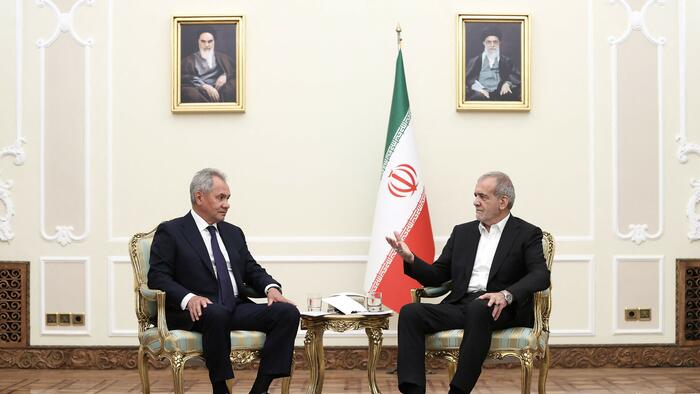Israeli security sources have indicated that Prime Minister Benjamin Netanyahu has authorized a series of retaliation strikes against targets in Iran, which are considered imminent following a significant ballistic missile attack on Israel by Iran on October 1. While no specific timeline for these strikes has been provided, reports suggest that they may occur before November 5, the date of the upcoming U.S. presidential election. American officials anticipate that an Israeli response timed with the election will elevate the ongoing tensions in the Middle East to the forefront of international attention. As the situation evolves, Russia and China have emerged as key global voices advocating for restraint and de-escalation from Israel, signaling their opposition to any further military actions in the region.
In the context of these potential strikes, Israel has been cautioned against using Saudi or Iraqi airspace for operations involving Iran. During a recent communication between the foreign ministers of China and Israel, Beijing reiterated its opposition to escalation and condemned attacks on the United Nations Interim Force in Lebanon (UNIFIL) by Israel. Chinese officials have called for an immediate and lasting cease-fire in Gaza, emphasizing the need for stability in the region. This diplomatic exchange underscores the global concern surrounding Israel’s military actions and the potential for a broader conflict involving multiple stakeholders.
Russia’s position on Israel’s potential military action against Iran has been markedly assertive. Deputy Foreign Minister Sergey Ryabkov stated that any Israeli attack on Iran’s nuclear facilities would be “catastrophic” and warned against even considering such an option. Ryabkov’s comments highlight Russia’s sensitivity to any developments that could compromise nuclear safety and security in the region. He reiterated calls for Israel to refrain from striking Iran’s nuclear infrastructure, framing potential military engagement as a serious threat to regional stability and safety. This strong warning from Russia may reflect its strategic interests in the area, particularly in relation to its alliance with Iran.
While Netanyahu has assured U.S. officials that any Israeli actions will target Iranian military sites exclusively, the ambiguity surrounding Israel’s military strategy suggests that all options remain on the table. This duality in messaging creates uncertainty about the scope and potential consequences of Israel’s intended retaliation. As tensions rise, discussions surrounding military strikes involve complex considerations, including international reactions and the broader geopolitical landscape. The relationship between Israel and Iran has historically been fraught with conflict, and the potential for escalation raises serious concerns regarding the stability of the region.
Additionally, there is a growing perception of deepening military and economic ties between Russia and Iran. Allegations have emerged accusing Iran of supplying ballistic missiles to Russia for its operations in Ukraine, claims that both nations have denied. In response to these allegations, the United States and the European Union have enacted new sanctions targeting Iranian officials and entities accused of involvement in military cooperation with Russia. These measures aim to restrict Tehran’s ability to assist Moscow militarily and highlight the international community’s apprehension regarding the ramifications of this partnership on global security.
In summary, the current situation is characterized by heightened tensions between Israel and Iran, with potential military confrontations looming on the horizon. Netanyahu’s approval of retaliation strikes against Iran, paired with warnings from Russia and China regarding the potential consequences of such actions, indicates a complex geopolitical landscape. The looming deadline of the U.S. presidential election adds an additional layer of urgency to these developments, as international attention remains focused on the Middle East. Ultimately, the outcomes of these tensions could reshape key alliances and influence the dynamics of regional and global security for the foreseeable future.

